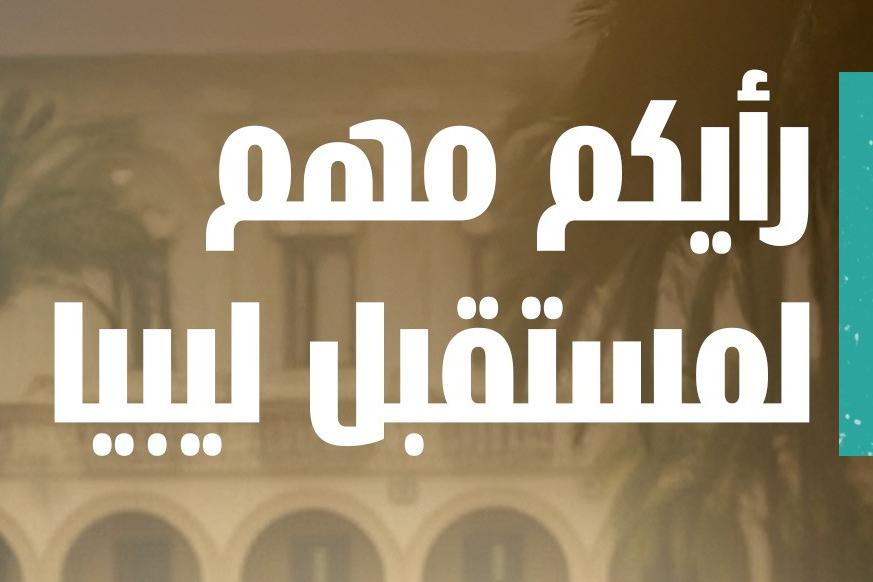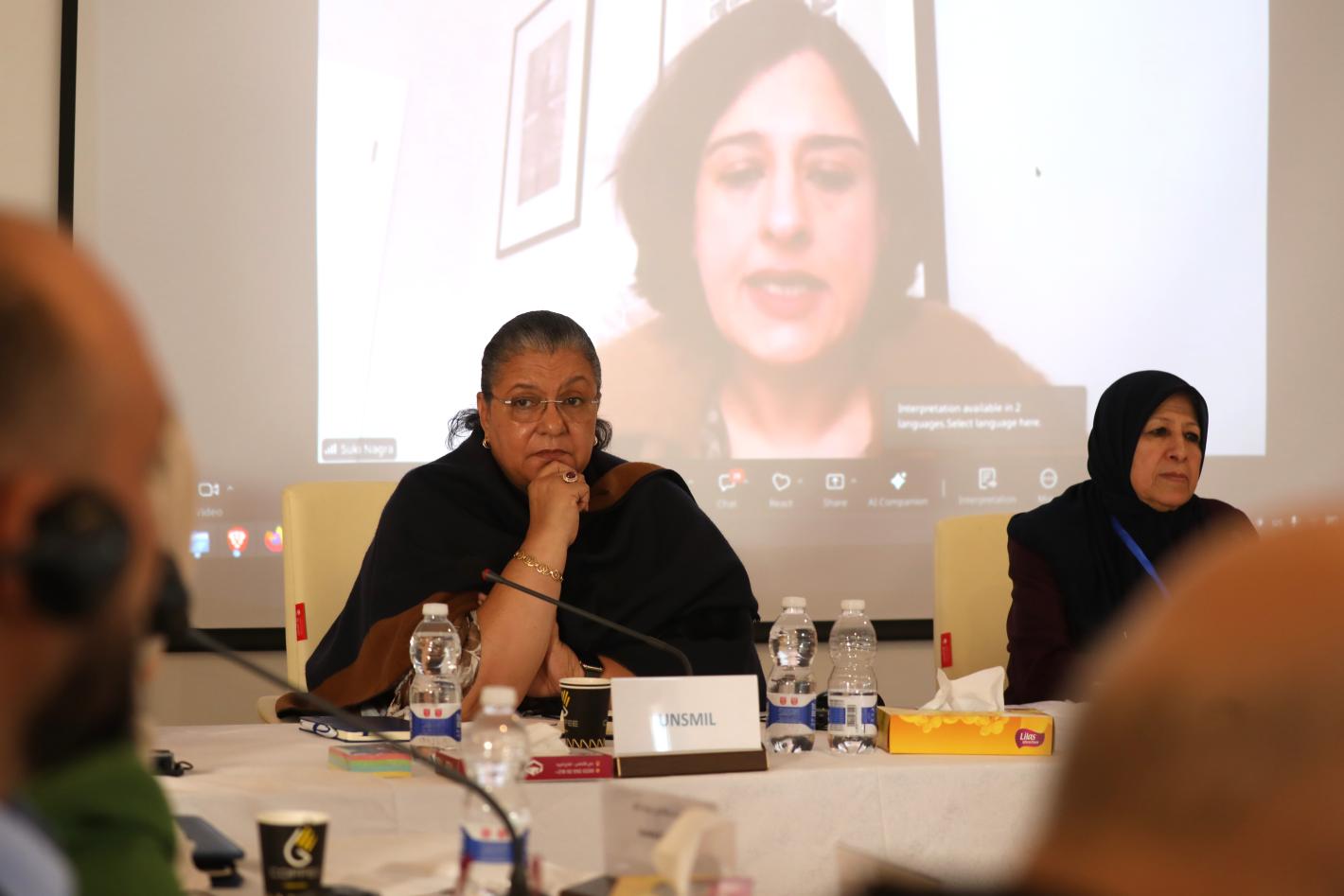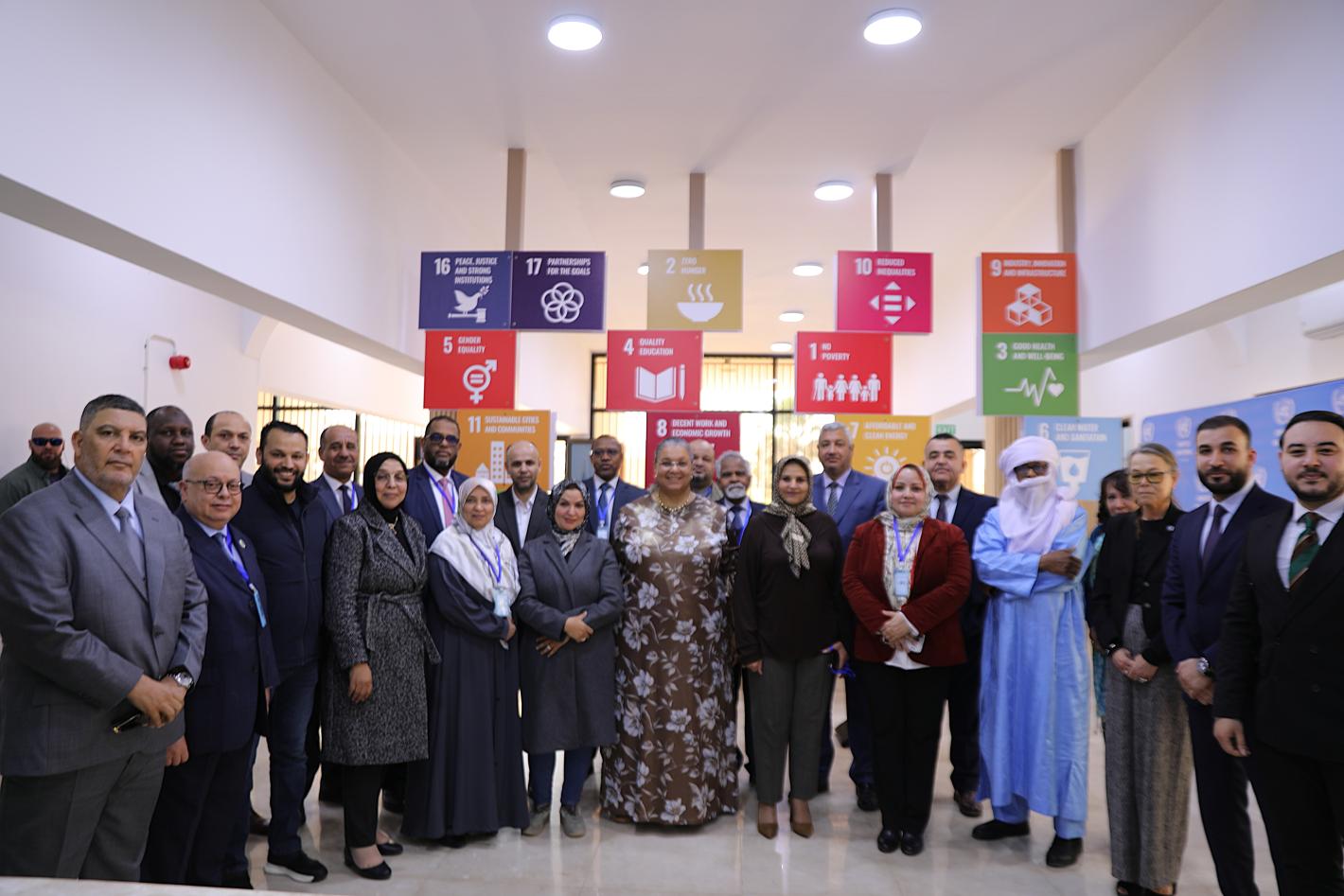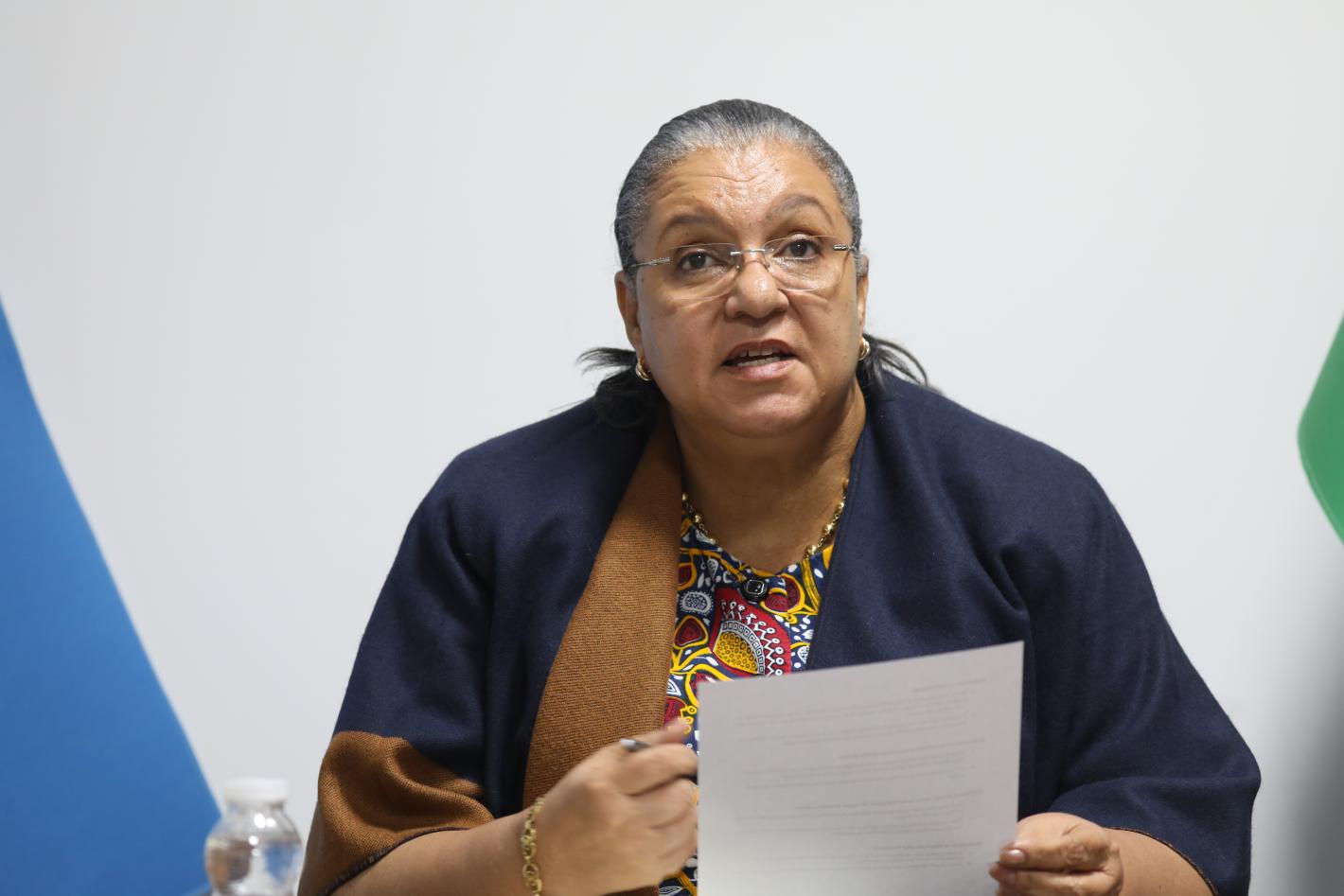تونس – بهدف مناقشة مدونة سلوك مشتركة، اجتمع ممثلون عن وزارتي الدفاع والداخلية، ومكتب رئاسة الوزراء لحكومة الوحدة الوطنية، والجيش الوطني الليبي والمشروع الوطني لإعادة التأهيل والإدماج، وممثلين عن 15 مؤسسة وجهة عسكرية وأمنية وذلك في تونس في الفترة 30 و31 مايو.
وخلال ورشة العمل التي نظمت برعاية من بعثة الأمم المتحدة للدعم في ليبيا، ركزت المداخلات إلى حد كبير على العمل بشكل تعاوني على مناقشة مسودة مدونة سلوك مشتركة من إعداد الليبيين. كما نظر المشاركون في مبادئ القوانين الليبية والقانون الإنساني الدولي والدروس المستفادة من سياقات مماثلة في جميع أنحاء العالم.
وترأست ستيفاني خوري، القائمة بأعمال رئيس بعثة الأمم المتحدة للدعم في ليبيا ونائبة الممثل الخاص للأمين العام، كافة جلسات الورشة.
وقالت نائبة الممثل الخاص في كلمتها الافتتاحية، إنها تأمل أن ينخرط الحاضرون في نقاشات هادفة من أجل صياغة مدونة سلوك موحدة يمكنها أن تساهم في تحسين الاستقرار والأمن وتعزيز حماية المدنيين واحترام حقوق الإنسان، والمساهمة في خلق بيئة مواتية للعملية السياسية.
وقالت السيدة خوري إنه "على الصعيد العالمي، يبدأ الحكم الرشيد بكيفية عمل المؤسسات الأمنية لدعم سيادة القانون". وأضافت: "عندما تعمل المؤسسات الأمنية بشكل غير منهجي، يصعب تحقيق الرخاء المستدام ورفاهية المواطنين."
واتفقت المجموعة إجمالاً على أهمية مدونة قواعد السلوك وضرورة استمرار الحوار بين المؤسسات والجهات الفاعلة.
وأكدت نائبة الممثل الخاص في حديثها: "بينما نواصل تشجيع ودعم توحيد مؤسسات الدولة، دعونا نتذكر أن طريق الإصلاح ليس سهلاً، ويتطلب الصبر والمثابرة والرؤية المشتركة. إنني على ثقة من أنكم، بفضل التزامكم وتفانيكم، قادرون على تحقيق خطوات كبيرة."
وعلى هامش ورشة العمل، التقت القائمة بأعمال رئيس البعثة بأعضاء اللجنة العسكرية المشتركة 5+5، التي تفاوضت، تحت رعاية الأمم المتحدة، على اتفاق وقف إطلاق لعام 2020 الذي وضع حدا للحرب الأخيرة في البلاد.
وشددت على الأهمية البالغة لمواصلة اللجنة لعملها المهم والاستمرار في احترام وقف إطلاق النار والبناء عليه. كما أثنت على جهود أعضاء اللجنة العسكرية المشتركة في تعزيز الأمن في ليبيا من خلال الحوار المستمر، بما في ذلك مساهمتهم في إغناء النقاش بشأن مدونة قواعد السلوك المقترحة.





